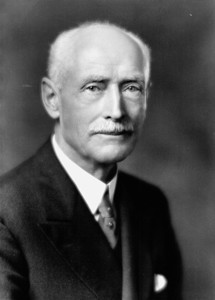The University of Iowa Libraries
Special Collections and University Archives
Finding Aid
|
Papers of Carl E. Seashore Access and Restrictions: This collection is open for research. Digital Surrogates: Except where indicated, this document describes but does not reproduce the actual text, images and objects which make up this collection. Materials are available only in the Special Collections Department. Copyright: Please read The University of Iowa Libraries' statement on Property Rights, Copyright Law, and Permissions to Use Unpublished Materials. Use of Collections: The University of Iowa Libraries supports access to the materials, published and unpublished, in its collections. Nonetheless, access to some items may be restricted by their fragile condition or by contractual agreement with donors, and it may not be possible at all times to provide appropriate machinery for reading, viewing or accessing non-paper-based materials. Please read our Use of Manuscripts Statement. Acquisition and Processing Information: Guide posted to the Internet January 2007. Photographs: Box 3 |
|
Biographical Note
Carl Emil Seashore was born on January 28, 1866, in Mörlunda, Hultsfred Municipality, Kalmar County, Sweden to Carl Gustav and Emily Sjostrand. He emigrated with his family to the United States in 1870 and settled in Iowa. The name “Seashore” is a translation of the Swedish surname Sjöstrand. He graduated from Gustavus Adolphus College, St. Peter, Minnesota in 1891, having studied mathematics, music, and classical languages and literature. During his years in college he served as the organist and choir director of a Swedish-Lutheran church and his salary there paid most of his college expenses. Seashore attended Yale when that school had just opened its psychology department under George Trumbull Ladd. In 1895, Seashore was awarded the school’s first Ph. D in psychology for his dissertation on the role of inhibition in learning.
After a trip to Europe and a subsequent fellowship at Yale, he accepted a permanent position at the University of Iowa where he spent the remaining 50 years of his life. There, he was eventually made chairman of the department of psychology and Dean of the Graduate School. He was instrumental in the University's decision 1922 to accept creative work in lieu of theses for graduate degrees in the fine and performing arts, the first public university in the U.S. to do so.
Seashore was particularly interested in audiology, the psychology of music, the psychology of speech and stuttering, the psychology of the graphic arts and measuring motivation and scholastic aptitude. He devised the Seashore Tests of Musical Ability in 1919, a version of which is still used in schools in the United States. His interests in the fine arts led to a joint effort with Professor Norman Meier and the publication of the Meier-Seashore Art Judgment Test in 1929. His complete publication list from 1893 to 1949 includes 237 books and articles.
Seashore died on October 16, 1949.
Related Materials
Faculty and Staff Vertical Files Collection, folder "Seashore, Carl E." (RG 01.15.03)
Miles, Walter R. In Biographical Memoirs (pages 256-316). New York: Columbia University Press, 1956.
Stoddard, George D. "Carl Emil Seashore: 1866-1949." In The American Journal of Psychology, Vol. 63, No. 3 (July 1950), pp. 456-462, University of Illinois Press.
Box Contents List
Box 1
University of Iowa commemorative plates
Box 2
Published articles and typed manuscripts of these articles, a folder on the "Starbuck Controversy," letters, an obituary entitled "World Famed Gustavus Graduate Dies" from the Gustavus Quarterly, and other miscellany.
Box 3
Photographs; one typed manuscript, a memoir: "Life in the Seashore Family," written by Carl G. Seashore, one of Carl E. Seashore's four sons.
Box 4
Books
Box 5
A bust of Seashore
Oversize Box 1
"Seashore Measures of Musical Talents," set of recording disks with matching tape cassette reference copies, with supporting documents.

